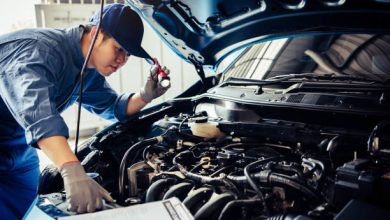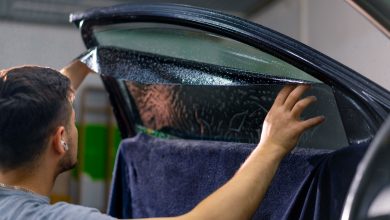The impact of COVID-19 can be felt far and wide. It has disrupted everyday life, putting almost every single country in some form of lockdown. Nobody has been spared. Lost lives, lost jobs and we’re facing a global economic slowdown.
One of the hardest hit by the virus is the automotive industry. With factories and car dealerships being forced to close, supply chains disrupted and consumers are delaying their purchase decisions. Digitalization has suddenly become a priority as businesses try to adapt and survive through these extraordinary times.
Here’s a look at how the pandemic has affected the automotive industry worldwide and in Singapore.
COVID-19’s Impact Worldwide
Manufacturing
Production of cars and car parts were severely affected as factories started to close.
From as early as February 2020, most factories in China suspended manufacturing to stem the spread of the virus. The closures had a huge impact as 80% of the world’s auto supply chain is connected to China, which equates to US$ 34 billion worth of automotive components each year. As the virus spread worldwide, factories in Europe and North America followed suit, further hurting the industry.
So, with orders being put on hold, this has affected businesses and the lives of millions. The disruption in supply will also postpone new car launches and it will continue to impact the industry well after the outbreak is over.
However, the situation in China is slowly improving. While some factories were able to remain open due to existing automation and digitalization strategies, others are starting to reopen again.
Relief Efforts
As the healthcare system struggle to keep up with the demands of the crisis, car manufacturers have been doing their best to contribute to relief efforts.
Automakers like Ford, General Motors and Tesla are doing their part to help fight COVID-19, using their factories to produce much needed medical equipment like face shields, face masks, ventilators and more.
Other automakers like Hyundai are sponsoring hospitals and aiding in drive-through testing of the virus. Volvo is lending their cars to transport medical workers and equipment to hospitals. Porsche will be raising money by auctioning off an exclusive Porsche 991 Speedster – one of 1,948 available – to raise money for the United Way Worldwide COVID-19 Community Response and Recovery Fund.
Sales
With the interruption in the production process of cars and parts, (almost) complete stop of marketing activities like car shows and shifting consumer buying intentions, global car sales dropped by 38% year-on-year.
In March alone, new car registrations fell by 44% in the UK. These numbers were similar across Europe – Italy saw a decrease of 85%, France fell by 72% and 69% in Spain.
Additionally, sales channels like car dealerships and showrooms have been forced to close. Therefore, the traditional avenues where people purchase cars are not there anymore, which is another contributing factor to the decrease in sales.
Automakers have responded to the loss of sales channels by bringing their operations online and digitalizing their business.
COVID-19 & Circuit Breaker Impact in Singapore
New and Used Car Market
Like all over the world, Singapore’s automotive industry has been severely impacted by the pandemic. With the extension of the Circuit Breaker, car dealerships will remain closed until 2 June 2020. So these dealers will be facing a mounting inventory left in storage, which means incurring storage costs for them as car sales come to a halt.
Furthermore, with the suspension of the COE bidding exercise, you won’t be able to buy cars unless dealerships have COE in hand. This poses a huge issue for the bigger dealerships as orders have already been placed and shipment will continue to come in. The issue these dealerships will face is finding storage as the stock starts to pile up.
These problems are common in the new car space, but the used car market brings a new set of challenges. As cars depreciate over time, used car dealers are losing money by the day. Inventories will also become stagnant as more people are not driving or are hesitant to make a big-ticket purchase.
Then there’s the matter of Road Tax and Insurance which have already been paid for. You are still required to pay for these, which will eventually add to their losses. So, when you add these with mounting operating costs and you’ll see why many small businesses in this space are worried.
Taxis and Private Hire Drivers
With a huge fleet of 75,000 in the point-to-point transport industry, compounded by the drying up of tourists and more people staying at home, taxi operators and private hire drivers are getting fewer rides.
This is especially worrying for the drivers as their livelihoods are severely affected by the pandemic. But luckily, operators like ComfortDelGro and SMRT, along with Grab, have given out rental waivers or rebates to help their drivers tide through.
Dealerships Going Digital
Amidst these uncertain times, one thing seems to be certain – automation and digitalization strategies are the way of the future. Across the globe, car manufacturers and car dealerships of all sizes are bringing the experience online.
In the UK, Car Wow, a car-buying platform, launched a ‘Delivery and Disinfections’ initiative. This remote buying service provides home test drives, virtual tours and guarantees zero-contact buying for interested buyers.
Similarly, Tesla is offering a contactless test drive for its customers in China. This brings the entire experience online as there will be no physical contact between customer and business.
In Singapore, all authorised dealerships have been bringing the experience online. Launching digital showrooms which allow customers to view cars in the comfort of their homes.
From BMW to Suzuki, these automakers have launched anything from e-consultations to sales advice and online showrooms. They’ve been able to garner interest over the last few weeks with even some customers having made deposits through PayNow or credit cards.
Next Up: Digitalisation and Automation
While China is starting to get back to normal as factories have slowly started to open again, some factories were able to remain open at the peak of the outbreak.
How? Automation and Artificial Intelligence.
Like a page out of a sci-fi movie, some Chinese companies deployed robots and automation technology in their factories as the virus engulfed the nation. These factories were able to maintain pretty normal production through the peak of the outbreak.
As such, it’s quite possible that many manufacturers worldwide will establish digital and automation strategies soon. This would mitigate the impact of the virus as companies would not be forced to shut down when such a pandemic occurs again.
Going Back to Normal
Many experts believe that the industry will only restart in the third quarter of 2020 and that’s if we’re not hit with a second wave of the virus.
The recovery will take time as many aspects of COVID-19’s impact dependant on various factors. Some of these factors include government regulations, availability of workforce and infrastructure.
However, this restart date is dependent on how each individual government is handling the pandemic.
In smaller countries like Singapore, normal life could come sooner too. Due to the fact that our population and area is small, so managing the virus might be easier and faster to contain.
People also liked: A COMPLETE GUIDE TO DISINFECT YOUR CAR CARRO & NTUC INCOME’S USAGE-BASED INSURANCE FOR CAR SUBSCRIPTION: ALL YOU NEED TO KNOW KEEP YOUR CAR IN TIP-TOP CONDITION FOR POST CIRCUIT BREAKER DRIVING




